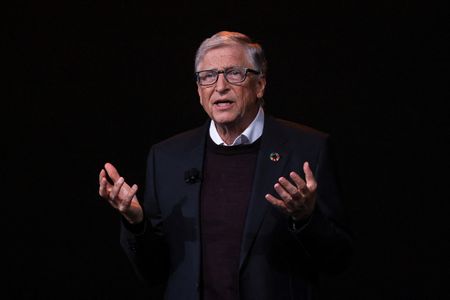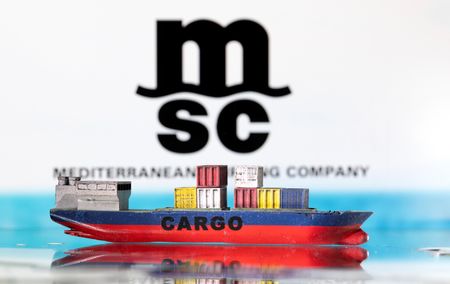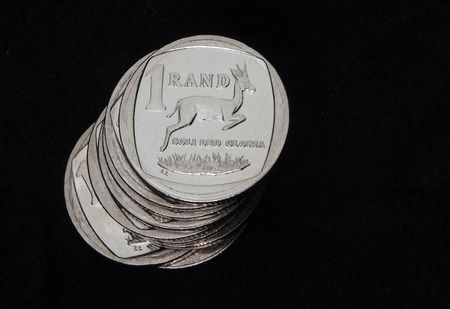By Oliver Griffin and Simon Jessop
SAO PAULO (Reuters) -Billionaire Bill Gates’ foundation will spend at least $1.4 billion over the next four years to help farmers in sub-Saharan Africa and Asia access technologies for adapting to extreme weather, the organization’s CEO told Reuters.
Speaking ahead of next week’s COP30 climate summit in Brazil, Mark Suzman, head of the Gates Foundation, said the funding would go toward innovations like mapping soil health and biofertilisers that use microorganisms rather than chemicals to promote plant growth.
Gates called last week for a pivot in climate strategy away from focusing on emissions targets and toward helping the poor, who are increasingly bearing the brunt of erratic weather and other climate extremes.
“These are the people who have contributed such a minimal fraction to the greenhouse gas emission that is causing climate change, but they are the most affected because those climate impacts actually hit them in terms of their ability to feed themselves and their families,” Suzman told Reuters in an interview before the funding was announced.
Noting that climate-fuelled weather extremes are posing an increasing threat to crop yields and food security, the United Nations has urged more protection for agriculture as global warming intensifies.
A report by more than 20 organizations including consultants Systemiq found that crop resilience was one of the most impactful areas of investment. The report, released on Tuesday, said there was a widespread need for climate-resilient crop varieties, improved weather forecasts and innovations such as AI-enabled mapping and guidance.
FARMING TECHNOLOGIES FOR THE FUTURE
The International Potato Center, one of the organizations to previously benefit from Gates Foundation funding, unveiled on Thursday a newly cultivated variety of potato that is resistant to blight, a disease that is spreading to higher altitudes as global temperatures rise.
“This new potato was developed in Peru by identifying wild potatoes with resistance to the disease and incorporating this resistance into cultivated varieties,” said one of the company’s researchers, Thiago Mendes.
Another recipient, TomorrowNow, sends weather updates by text message to farmers in African countries including Kenya and Rwanda, helping to prevent them wasting seeds and supplies by planting or harvesting at the best times, CEO Wanjeri Mbugua told Reuters.
Suzman said there was robust research and development for agricultural solutions, but that the goal for the world should be to deliver those solutions to the world’s poorest.
“The jury is still out on if we’re going to see that,” he said.
(Reporting by Oliver Griffin and Simon Jessop in Sao Paulo; Editing by Katy Daigle and Nia Williams)









